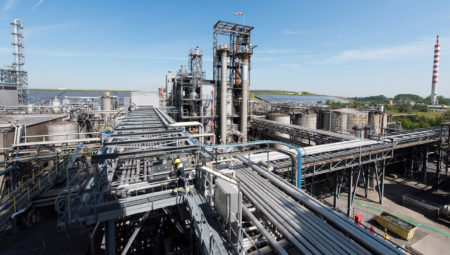Initiator is the Bio Innovation Growth mega Cluster (BIG Cluster), a so-called ‘Smart Specialization Initiative’ aiming at transforming Europe’s industrial mega cluster in the Flanders region of Belgium, The Netherlands and the German state of North Rhine-Westphalia into the global leader of biobased innovation growth.
In the BIG cluster region, process gases containing carbon monoxide (CO) are abundantly present as industrial emissions. However, they can also serve as valuable raw materials for the biobased production of building blocks for polymer production. These are usually produced conventionally via petrochemical process routes. The BioCOnversion project aims to make this process more sustainable. To this end, the German Federal Ministry of Education and Research (BMBF) funded € 1.5 million.
The three-year project started at the end of May 2018. As a start, an international team will develop different technologies for the individual process steps. Their performance will be evaluated to conceptionally design the overall process using the best-suited technology approaches. This BioCOnversion process will be experimentally validated and optimised in the second project phase.
The cross-border consortium combining academic expertise and industrial experience is built by Bio Base Europe Pilot Plant (Belgium), Covestro Deutschland AG (Germany), Fraunhofer Institutes for Molecular Biology and Applied Ecology (IME) and for Environmental, Safety, and Energy Technology (UMSICHT) (both Germany), Flemish Institute for Technological Research – VITO (Belgium), nova-Institut GmbH (Germany), Ruhr University Bochum (Germany), RWTH Aachen University (Germany), Technical University of Eindhoven (the Netherlands), Technical University of Graz (Austria), thyssenkrupp Steel Europe AG (Germany), VDEh-Betriebsforschungsinstitut GmbH (Germany), and Wageningen University and Research (the Netherlands). The consortium is coordinated by the open innovation cluster CLIB2021.



